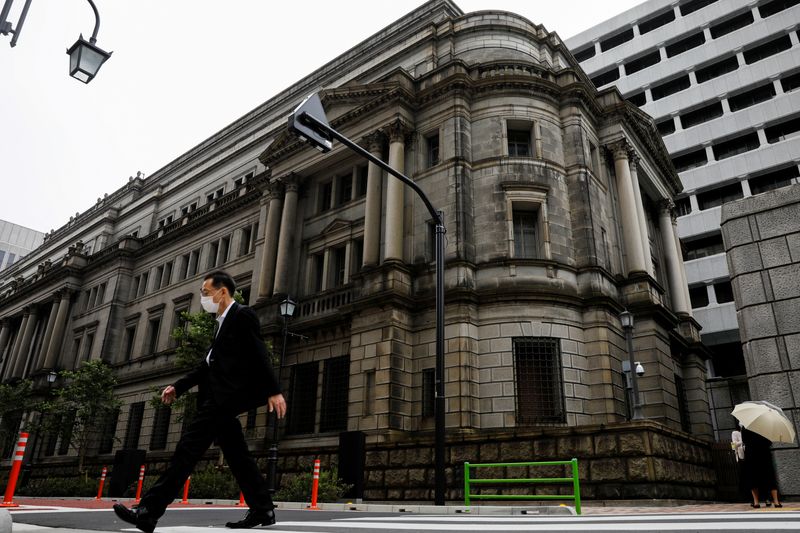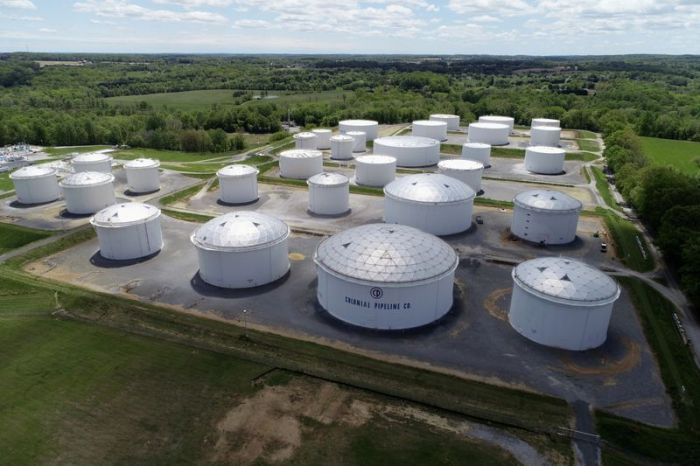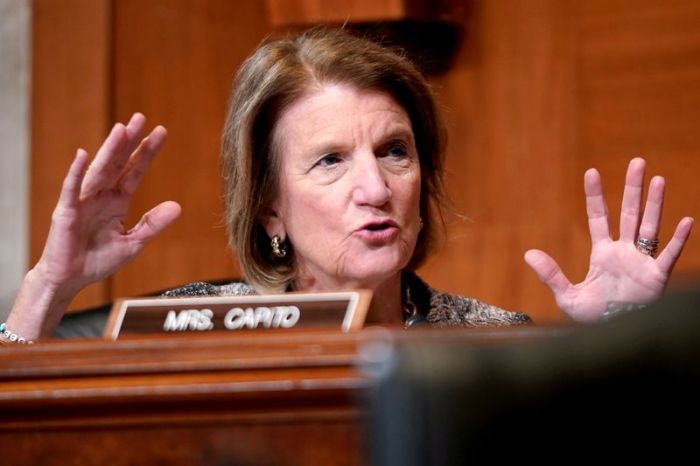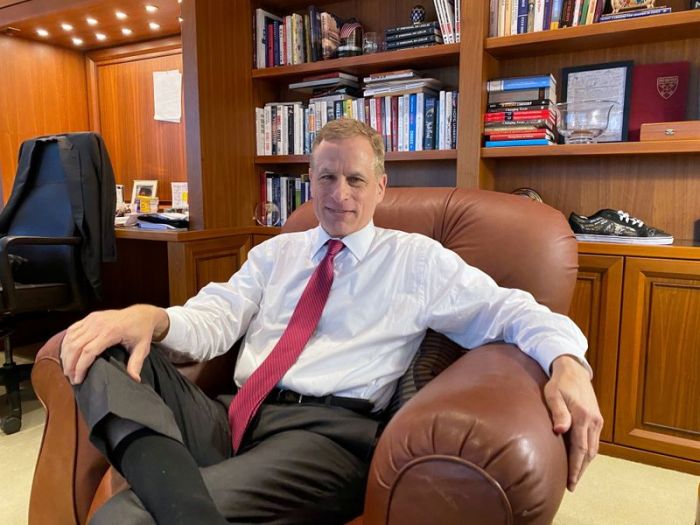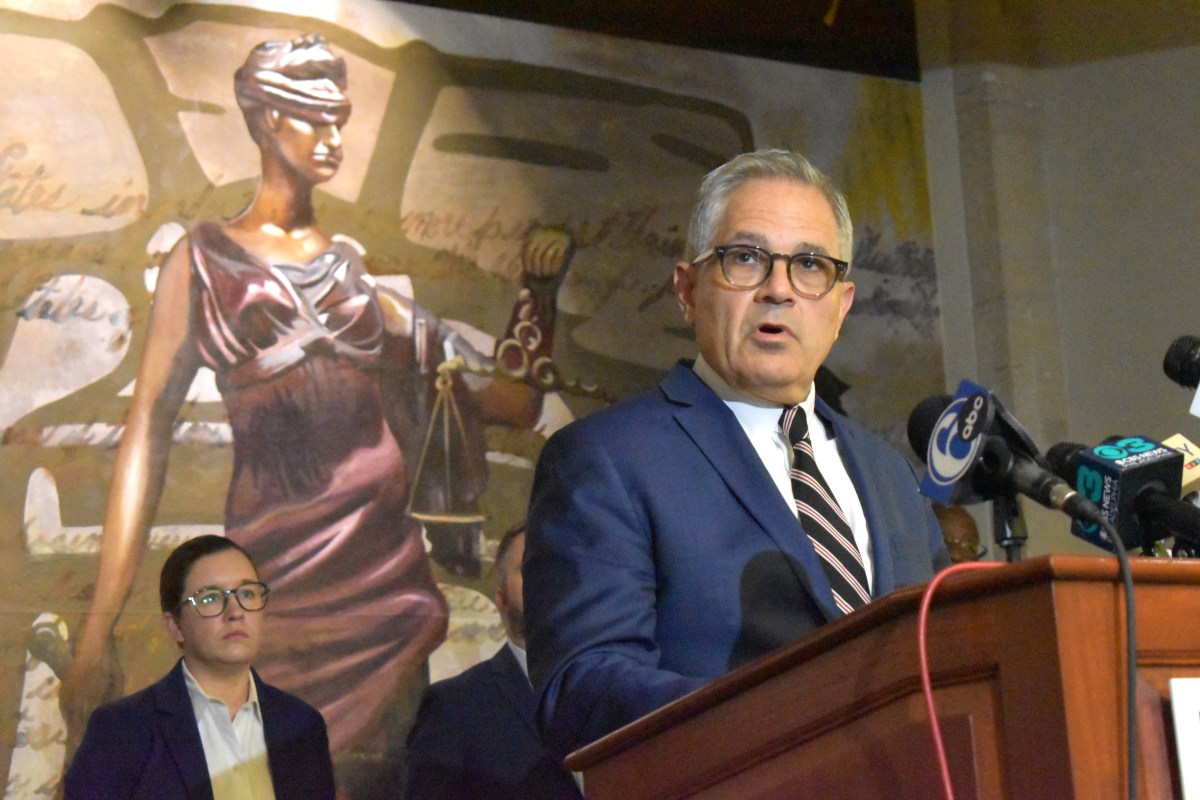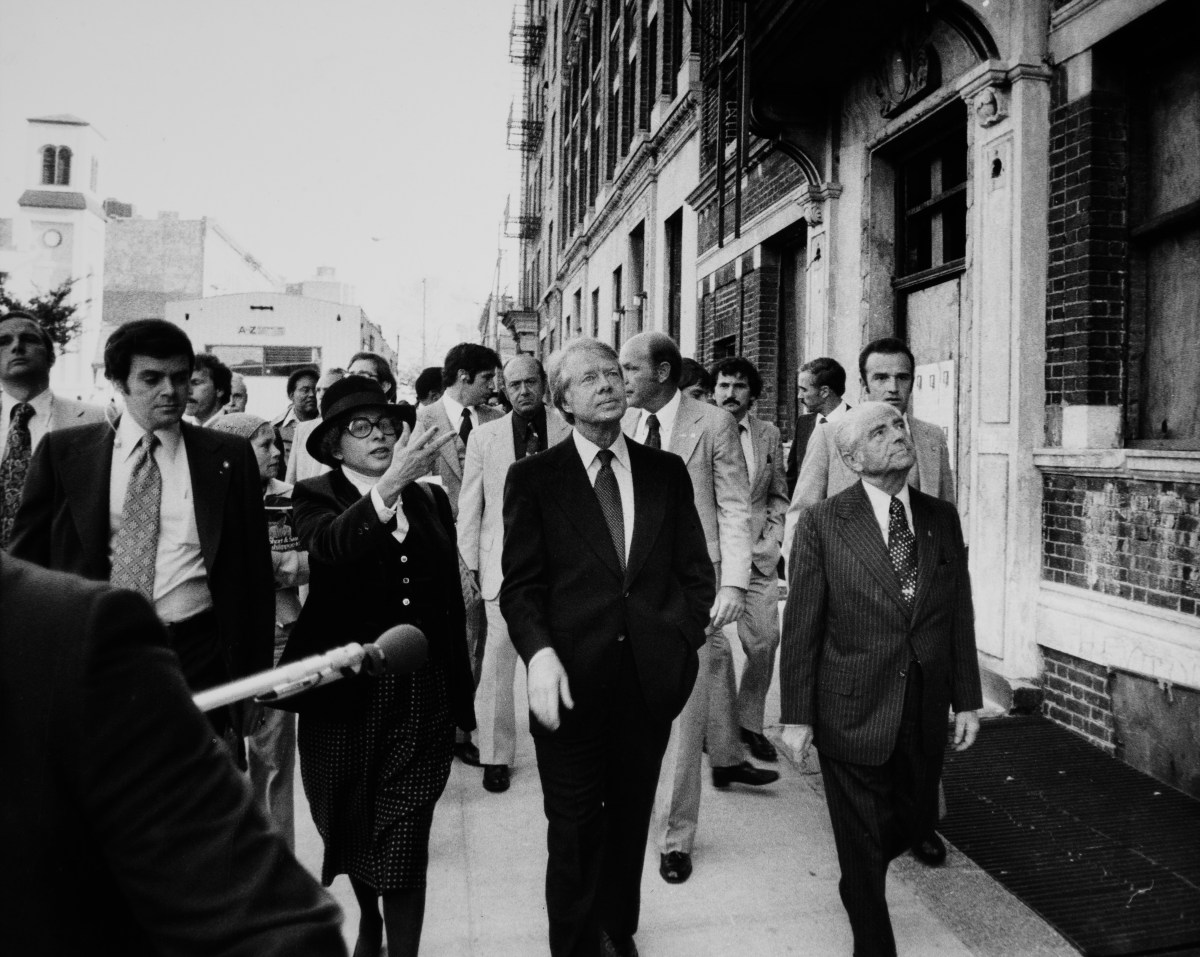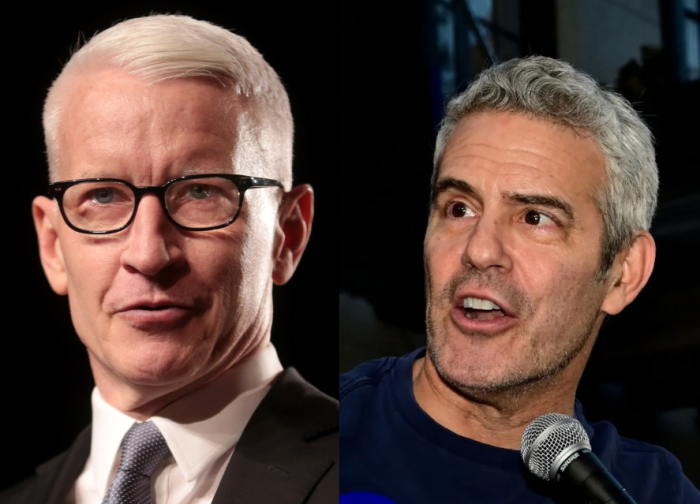TOKYO (Reuters) -Japans’ expected extension of emergency curbs to combat COVID-19 heightens the chance the central bank will extend relief measures to companies to cushion the economic blow from the health crisis.
Bank of Japan officials, including Governor Haruhiko Kuroda, have repeatedly said they will extend the relief programme if needed to underpin a fragile recovery as the country struggles with a resurgence in infections. The scheme is due to expire in September.
The BOJ may decide on an extension as early as its rate review in June, two sources familiar with its thinking said, as the government looks to extend the anti-virus curbs by three weeks.
“Corporate funding conditions may have eased somewhat, but the outlook is uncertain,” one of the sources said.
Both sources spoke on condition of anonymity due to the sensitivity of the matter.
The government is looking to extend the current state of emergency curbs until June 20, a cabinet minister said on Friday, clouding the outlook for the country’s economic recovery.
The BOJ last year ramped up asset purchases and put in place a loan programme aimed at channeling money to cash-strapped small firms to cushion the blow from the health crisis. It has already extended the deadline once.
“Ideally, the BOJ would spend more time scrutinising whether some tweaks are needed in extending the steps in response to changes in how the pandemic is affecting corporate funding,” said Mari Iwashita, chief market economist at Daiwa Securities.
“But if the BOJ wants to move quickly to show it’s working hand in hand with the government to combat the pandemic, it will probably extend the steps in June,” she said.
The central bank typically extends the deadline of such programmes by half a year. Analysts believe an extension is a done deal, as a slow vaccination rollout and a resurgence in infections weigh on the already weak economy.
The BOJ next meets for a rate review on June 17-18. Waiting until the following meeting on July 15-16 would allow the BOJ to scrutinise the outcome of its closely-watched “tankan” corporate survey due on July 1.
The central bank still describes corporate funding conditions as severe. But officials have recently pointed to a divergence between manufacturers benefitting from robust overseas demand and retailers continuing to suffer from curbs to domestic activity.
(Reporting by Leika Kihara; Editing by Sam Holmes and Kim Coghill)

